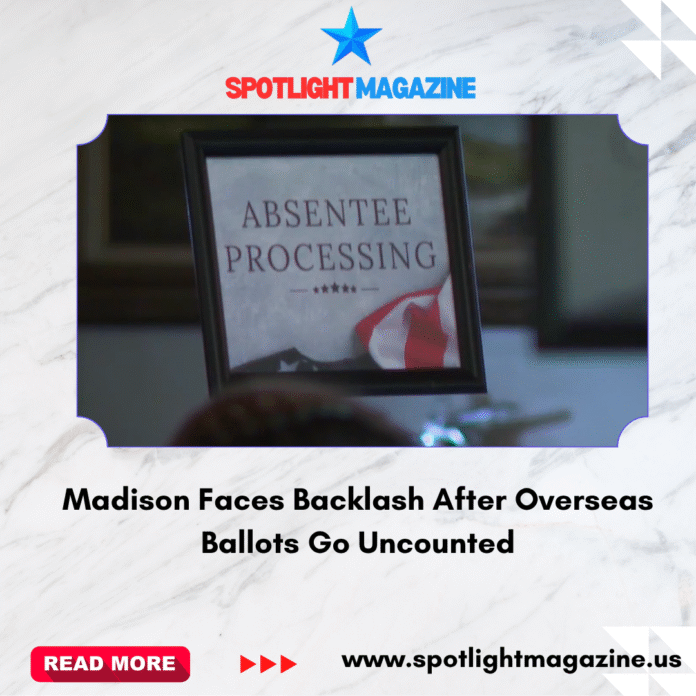The City of Madison failed to notify dozens of overseas voters that their ballots were never counted in the November 2024 election, leaving many of them unaware for months that their votes had been missed. Nearly 200 absentee ballots were never processed during the election. While the city informed voters living within the United States, those voting from abroad were never told their ballots had been overlooked.
One of those voters was Emma Kempf, a University of Wisconsin–Madison graduate currently studying in Taiwan. She said she always votes immediately after receiving her absentee ballot, and online tracking through the MyVote Wisconsin portal showed that her ballot had arrived weeks before Election Day. For that reason, she had no reason to think her vote wasn’t counted.
Seven months later, Kempf received a letter—not from Madison officials, but from a law firm—asking if she wanted to join a class-action lawsuit on behalf of voters whose ballots had gone uncounted. Confused, she contacted the City of Madison to find out what had happened. Staff confirmed that her ballot had arrived on time but had never been counted. When she asked why she had never been notified, they couldn’t give her an explanation.
Internal city emails obtained by WMTV 15 show that staff were unsure whether notices to overseas voters were ever sent. One email said, “I’m not sure where they are saved,” while another noted that if letters had been returned as undeliverable, “we should have it somewhere.” For voters like Kempf, the lack of accountability felt like a failure of more than just one clerk—it felt like a failure of the whole system.
The city’s new clerk, Lydia McComas, who had only been in the job for two months, said she learned about the issue through an open records request. She immediately sent apology letters to every overseas voter whose ballot had been missed. McComas said she takes the situation seriously, emphasizing that election officials are responsible for upholding trust in democracy, and losing ballots damages that trust.
Kempf wasn’t the only one affected. The investigation found at least five other voters living in Hong Kong, the Netherlands, Japan, Canada, and Spain also never received any notice from the city. A six-month investigation by the Wisconsin Elections Commission (WEC) found that the 193 ballots were misplaced inside the clerk’s office and were not found until weeks after the election. During a WEC hearing, the commission chair expressed disbelief, asking, “What on Earth is going on here?”
Investigators discovered that the missing ballots were reported to the former city clerk, Maribeth Witzel-Behl, but instead of acting immediately, she went on vacation for several weeks and didn’t report the issue until more than a month after the election. Witzel-Behl later resigned, and her attorney declined to comment on the matter.
The law firm Law Forward filed a class-action lawsuit against the city in September, arguing that voters’ constitutional rights were violated. They say the lawsuit aims to set a precedent that there are real consequences when a citizen’s right to vote is not protected. The city is expected to outline its response later this month.
City attorney Michael Haas said that Madison has made significant improvements to its absentee ballot procedures and is confident the same mistake will not happen again. The new clerk’s office has updated its record-keeping, strengthened internal communication, and reorganized staff roles. The Wisconsin Elections Commission has also issued recommendations, urging Madison and other cities to improve ballot tracking, make sure poll workers know how many absentee ballots to expect, double-check all materials returned from polling places, and print poll books closer to Election Day to ensure more accurate information.
When asked what she wanted from the city, Kempf’s answer was simple: make sure this never happens again.


